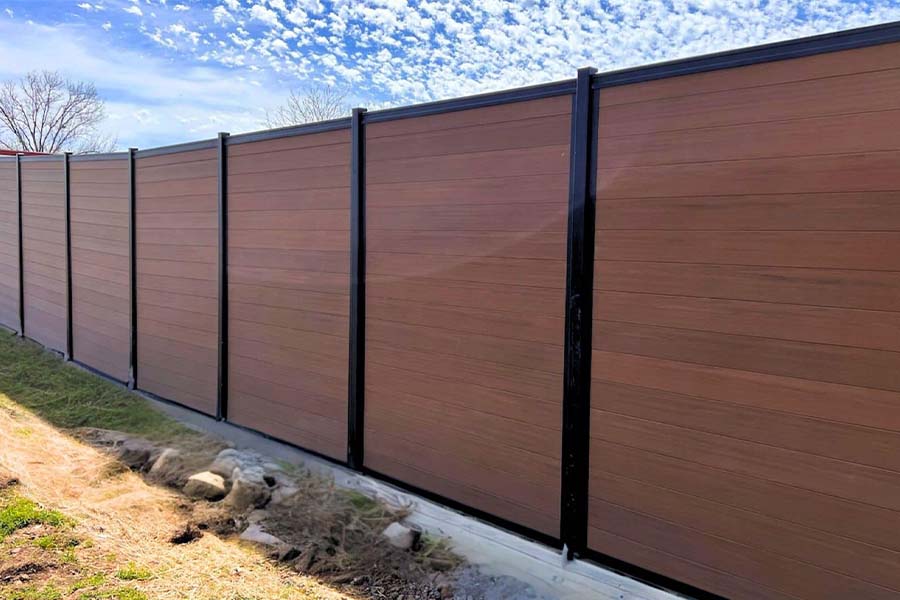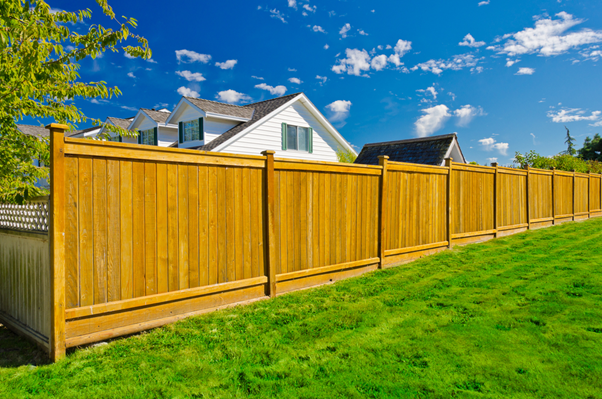All Categories
Featured

Picking the right fence product is vital for achieving the balance of resilience, aesthetic appeals, and performance that suits your residential or commercial property. Wood, vinyl, and aluminum are preferred selections, each with special features that satisfy details demands. Right here's a thorough look at the advantages and downsides of these 3 materials.
Wood Fencing. Pros:. Classic Charm: Wood uses a natural, timeless look that complements different architectural styles. Adjustable: It can be painted or tarnished in a selection of design and colors. Affordable: Timber fences are commonly less expensive upfront than plastic or aluminum. Eco-Friendly: As an eco-friendly resource, timber is eco-friendly and lasting when sourced sensibly. Disadvantages:. Maintenance-Intensive: Calls for regular discoloration, painting, or securing to secure versus climate and bugs. Shorter Life-span: Depending on the kind of timber and environment, it commonly lasts 10-15 years. Susceptability to Damages: Prone to decomposing, bending, and termite damages without proper treatment. Wood is perfect for house owners who value visual appeals and agree to invest time and initiative in upkeep to prolong its life.
Plastic Fence. Pros:. Long lasting: Immune to insects, rot, and climate, plastic keeps its framework in rough problems. Reduced Upkeep: Requires little maintenance past periodic cleansing. Long Life expectancy: Vinyl can last 20-30 years without significant wear or damages. Functional Layouts: Offered in various colors, appearances, and styles, consisting of options that mimic wood. Disadvantages:. Expensive Installation: Vinyl fencings are much more pricey to set up compared to timber. Breakable in Cold Weather: Vinyl can split in extreme chilly climates. Difficult to Repair service: If damaged, entire areas may need replacement, which can be challenging to match. Plastic secure fencing is a fantastic selection for those prioritizing longevity and minimal upkeep, also if it features a greater upfront cost.

Light Weight Aluminum Fencing. Pros:. Rust-Resistant: Light weight aluminum does not corrosion, making it suitable for humid or damp locations. Light-weight however Solid: Deals stamina without being excessively hefty, which simplifies installation. Reduced Upkeep: Requires bit even more than cleansing and periodic repainting. Longevity: Light weight aluminum fencings can last for years without significant deterioration. Classy Styles: Often used for ornamental objectives, aluminum includes elegance to any kind of residential or commercial property. Cons:. High Preliminary Expense: Aluminum fences are among the extra expensive choices. Minimal Personal privacy: Usually designed with open rooms, they do not obstruct sights or sound. Prone to Dents: While sturdy, light weight aluminum can be nicked or curved with heavy effect. Light weight aluminum is ideal fit for those who desire a long-lasting, trendy fence and don't need full privacy.
Making the Right Choice. Each material has its weaknesses and toughness:

Timber is best for standard aesthetics and eco-conscious purchasers who don't mind maintenance. Plastic helps home owners seeking a weather-resistant, low-maintenance service. Aluminum is a durable, decorative alternative for those that want style and longevity. Consider your priorities-- whether it's price, privacy, look, or upkeep-- and get in touch with a fence professional to pick the material that best fulfills your needs. A well-selected fencing will certainly improve your building for several years to come.
Latest Posts
Check Out the Premier Auto Repair Offers in Montclare, Chicago
Published May 27, 25
1 min read
Find the Premier Auto Repair Offers in Montclare, Chicago
Published May 27, 25
1 min read
Explore Reduce Expenses on Car Maintenance with Montclare Auto Repair’s Limited-Time Deals
Published May 26, 25
1 min read
More
Latest Posts
Check Out the Premier Auto Repair Offers in Montclare, Chicago
Published May 27, 25
1 min read
Find the Premier Auto Repair Offers in Montclare, Chicago
Published May 27, 25
1 min read
Explore Reduce Expenses on Car Maintenance with Montclare Auto Repair’s Limited-Time Deals
Published May 26, 25
1 min read